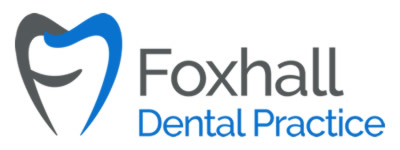How Real Is The Risk Of Oral Cancer?

Although not common, mouth cancer is still a genuine risk if you don’t look after your oral health.
Most people associate dentists with the investigation of teeth and the restoration (or extraction and replacement) of them, when necessary. Some patients are surprised when, during a check up, the dentist also feels their cheeks, tongue and other areas in and around the oral cavity. The reason why we do this is that, because we regularly check the oral cavity, we are in the front line to detect any possible indications of oral cancers which may well otherwise not be noticed until the problem is more advanced and potentially more serious too.
The word ‘cancer’ can cause significant anxiety and rightly so. It can be fatal, but even if not, it can be life changing too. The risks of oral cancer are higher in some people, but, with some adjustments to lifestyle habits and good oral care, most of our Ipswich patients will be able to avoid this.
The risks
While it might not be one of the best well known cancers, oral cancer still affects in the region of eight thousand people every year in the UK and has the fastest rising cases at the moment. While not all of these are fatal of course, they can cause a range of long term or permanent problems that can affect day to day life. These include:
Eating problems – Difficulty with chewing and swallowing of food
Speech impediments – Voice might weaken and make certain letters and sounds difficult to pronounce, making conversation more difficult
Pain – Permanent or occasional pain in the mouth and ear areas can occur depending on the location
Facial and neck disfigurement – This can be caused by the cancer itself or by any surgery that is required to treat it
Lockjaw and damage to the jaw – In some cases, it might become difficult to open or close the jaw and there may be some damage as well to the jawbone itself
As you can see from the above, these are quite severe problems and are obviously best avoided where possible.
What causes oral cancer?
The biggest single factor is smoking, without a doubt. Smokers are at a much higher risk of mouth cancer than non smokers. Stopping smoking is the biggest thing you can do to improve your chances of avoiding this problem. While alcohol consumption in moderation is OK, heavy or regular alcohol drinking can also be a major factor too.
HPV (Human Papillomavirus) infection
The HPV-16 strain, in particular, has been strongly linked to cancer of the tongue and throat areas especially. Other strains may also contribute to this as well. The virus is mainly transmitted through oral sexual practices. Vaccinations are increasingly available and younger people especially should talk to their GP about this.
Diet
A poor diet generally but especially one that is deficient in antioxidant vitamins such as A.C and E could increase the risk of cancers. Make sure to eat a well balanced diet
Dental issues
Localised problems especially could be caused by irritation to the cheeks, tongue and gums caused by sharp or broken edges on the teeth, yet another reason to make sure that you have a regular check up at the Foxhall Dental Practice.
Symptoms
There are various symptoms that might indicate cancer could be present. These might include unusual lumps or bumps in the oral cavity, lesions, red or white patches in the mouth, discomfort or difficulty in swallowing and numbness. Basically, anything that can’t be explained by a dental issue should be taken seriously.
If we see any of these, it is important to remember that we are not cancer doctors and can’t diagnose. We will usually refer you to your GP for further investigation. If we do this, please don’t panic. In most cases there will probably be a logical explanation but it is always best to make sure. Any cancers should be treated as early as possible for the best outcome and we recommend that you do see your GP if we suggest that you do so. Late diagnosis and treatment is a major problem and early intervention has around a 90% success rate, so please don’t delay.
The best way to avoid oral cancer then is to quit smoking and excessive drinking, eat a well balanced diet and make sure to see our Ipswich dentists and dental hygienist on a regular six month basis to maintain a healthy mouth.
Make sure that you reduce your mouth cancer risks and keep the oral cavity in good health. Book your appointment with our dentist or hygienist by contacting us today and you can call the Foxhall Dental Practice on 01473 258396. You should also do this if you have any concerns about any of the symptoms mentioned previously, especially if you don’t have a routine check up coming up very soon.